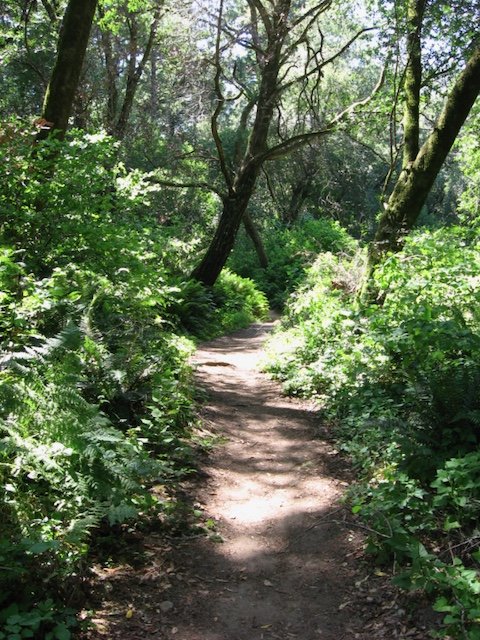Pianos and Place Settings
“Today is a very special day,” I told seven-year-old Celia, a happy child with long dark pigtails. She looked up at me, expectantly. “Today is the day you are going to finish your first piano book.” We turned together to the last page, the certificate waiting for her name and my signature. I got out my fancy calligraphy pen, filled in her name and the date, and signed it with a flourish. She was thrilled at the pomp and circumstance. “You are going to want this someday when you are a very famous pianist. People will ask you, ‘Who was your first piano teacher?’ and you will have this certificate to show them.” She grinned from ear to ear, her freckled face glowing, completely convinced.
These days I am finishing last lessons of the semester, coaching recital pieces, signing certificates. Meanwhile a few blocks away, my parents are moving, downsizing, and looking to rid themselves of decades of sentiment. Among the discards: my childhood piano. The little Yamaha spinet saw thousands of hours of practicing by me and my siblings. It sat patiently through years of John Thompson gems. It witnessed so many tears and triumphs. None of us kids have any certificates of piano celebration to show for our musical education, but our childhoods were spent at that instrument.
The piano has been silent now for a long time now. Momma no longer plays. When my siblings come to visit, they might noodle a bit, but these days the piano is mostly a piece of furniture. And lately, as my parents consider the past and the future and all that comes with both, the piano slides into its page of our family history. Precious history, but history nevertheless.
“Do you feel sad about the piano going?” Matt asks me. I don’t. I try to, but I have my own piano and my own history to write. Truth be told, I have never had a lot of sentiment around a particular instrument. To me, a piano is a means to an end, a place of practice, not a sacred object in its own right. I dearly love the six-foot grand piano that we bought shortly after moving into this house 19 years ago. I spend my life at this piano, practicing and rehearsing and teaching. But should it disappear tomorrow, I know it can be replaced.
“What about Grandma Beth’s china?” Momma asks me. “Do you want her china?” My own set of gold-rimmed wedding china was left behind in Texas when we moved to Boston twenty-four years ago. I have never once missed it. Grandma Beth was my great-grandmother. She and Grandpa Bill lived and farmed in the Midwest and for a time, Grandpa Bill was a Kansas state senator. Hence the twelve-piece dinner set and all the accompanying pieces of cut-glassware. But as a child out on the Kansas prairie, Grandma Beth learned to play the piano, taking lessons from a music teacher in a neighboring town. She then taught her daughter, my Grandma Carol, who then in turn taught my mother, who then in turn taught me. I owe my life’s work to this grandmother, but I don’t know if I need her china.
But it does give one pause.
As a culture we accumulate evidence of our nostalgia. We certainly accumulate. Dad brings me piles of books to go through. My parents are sorting through boxes of loose photos, and shelves of picture albums. There is that vase brought home from the trip to Mexico. A painting bought in Paris. And of course, Grandma Beth’s china and crystal.
Weighed down by a world of responsibilities and cares, I find myself thinking a lot about the idea of lightening my load, both metaphorically and literally. I know that while I can walk away from Grandma Beth’s twelve place settings and my childhood piano, I have sometimes hung on to relationships or situations far past their expiration date. I have continued to teach students that were a bad match either pedagogically or personally, because I was stubborn and determined to make it work. I have stayed in jobs or roles that didn’t suit me well because I didn’t want to admit defeat. I have been afraid to end friendships even when they might have grown stale, or even unhealthy, because I was avoiding a goodbye. I don’t know when to call it quits, to cut my losses and run. I’m rather fond of stability and permanence. I like longevity and faithfulness. Continuous Practice. Change is hard. Letting go, sometimes impossible.
But in big and small ways, the world is shifting noticeably all around us, all the time. A school year is wrapping up; we assess learning and progress with tests and diplomas and certificates of all kinds. There are final recitals and concerts, last soccer games and carpool runs. Young people are graduating, ending chapters of education, stepping into adulthood, into relationships and roles and uncertain futures. Nationally, our politics are falling apart and reorganizing in unfamiliar shapes and sizes. Churches and religious institutions are splintering and splitting open, dividing and reforming, mission statements still to be defined. Whole countries are negotiating borders and populations, sometimes to devastating effects. Someone will get the china. Someone else will get the piano.
And so, even as a semester, a season, a spring of our lives comes to a close, there is much to be done, or at least to consider, to wonder about and to ponder in the early dawn hours. There are last lessons to teach, final instructions to give. There are gentle goodbyes to be said, notes to be played, programs to be filed or tossed. In our wild and complicated lives, there is so much hurt and so much goodness in every day. We get both. Travel lightly. The world is precious and sacred and full enough already.
